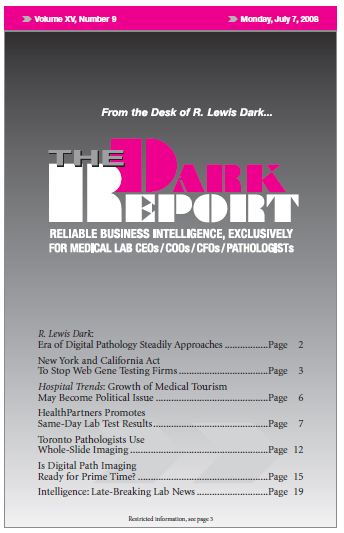HERE’S AN UNLIKELY PARTNERSHIP that is a sign of the healthcare times. The InterContinental Hotels Group (IHG) and the Medical Tourism Association (MTA) recently announced that they will work together to facilitate medical-related travel into Latin America. The goal of this partnership is to promote medical tourism. IHG is one of the world’s largest hotel …
Growth of Medical Tourism May Become Political Issue Read More »
To access this post, you must purchase The Dark Report.


